- Category
- War in Ukraine
“Your Shift Doesn’t End Until the Job Is Done” Ukrainian Psychologists on Responding to Trauma After Russian Airstrikes
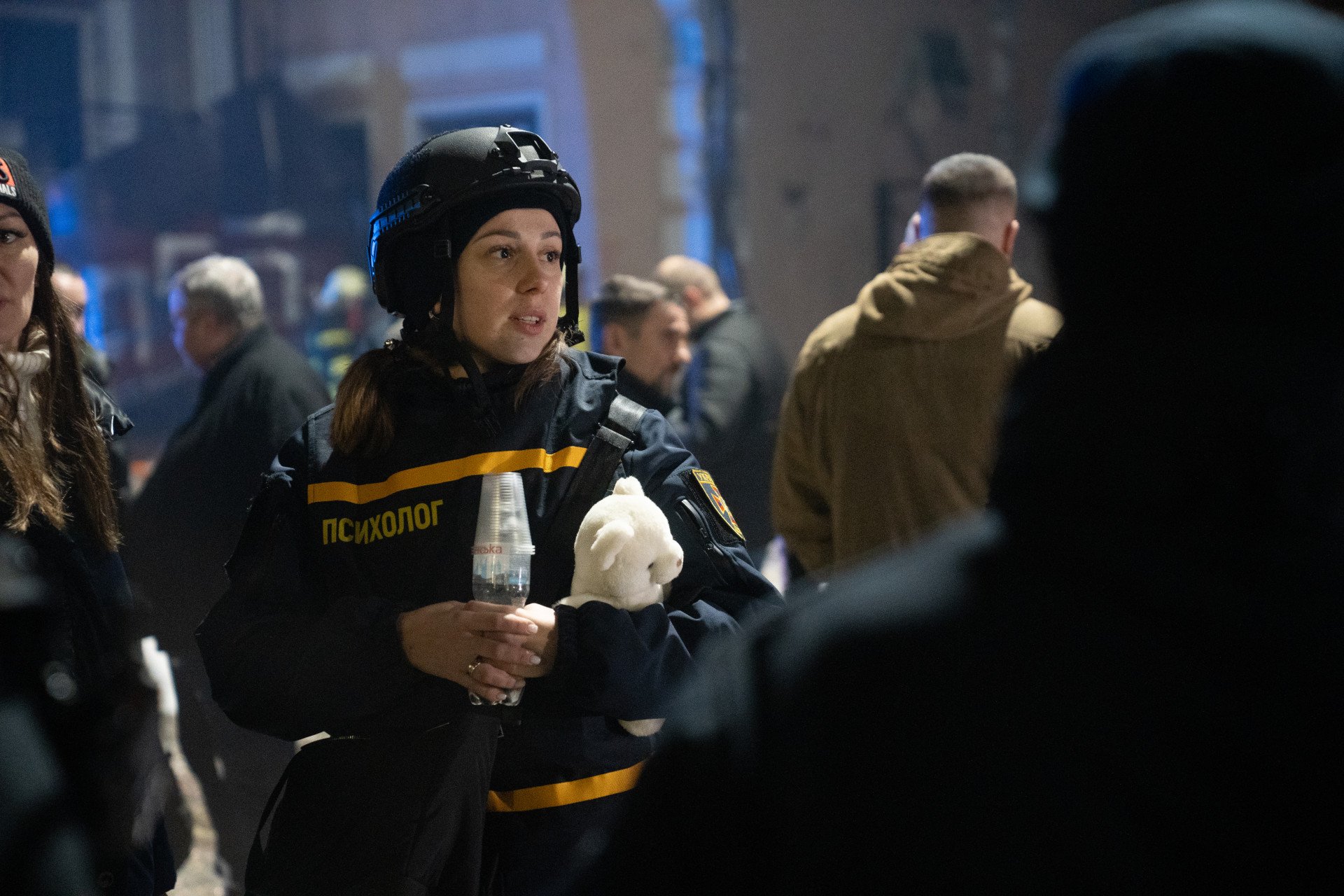
When a Russian missile strike levels a building, there’s rubble, flames, and frantic rescue efforts. While firefighters and paramedics save lives and recover bodies, another group of first responders comes in—psychologists.
“Why provide psychological first aid immediately after a crisis?” asks Liubov Kirnos, an experienced psychological aid provider in Kyiv. “Why not wait and visit a psychotherapist later? My answer is simple: why call an ambulance instead of waiting to see your doctor? Some conditions demand immediate care to prevent long-term damage, like PTSD .”
The State Emergency Service of Ukraine (SESU) employs over 100 psychologists who respond to the aftermath of Russia’s relentless attacks. We spoke to five Ukrainian psychological first aid responders from Kyiv, Kharkiv, Odesa, Lviv, and Zaporizhzhia regions to learn how they navigate their difficult jobs in the chaos of war.
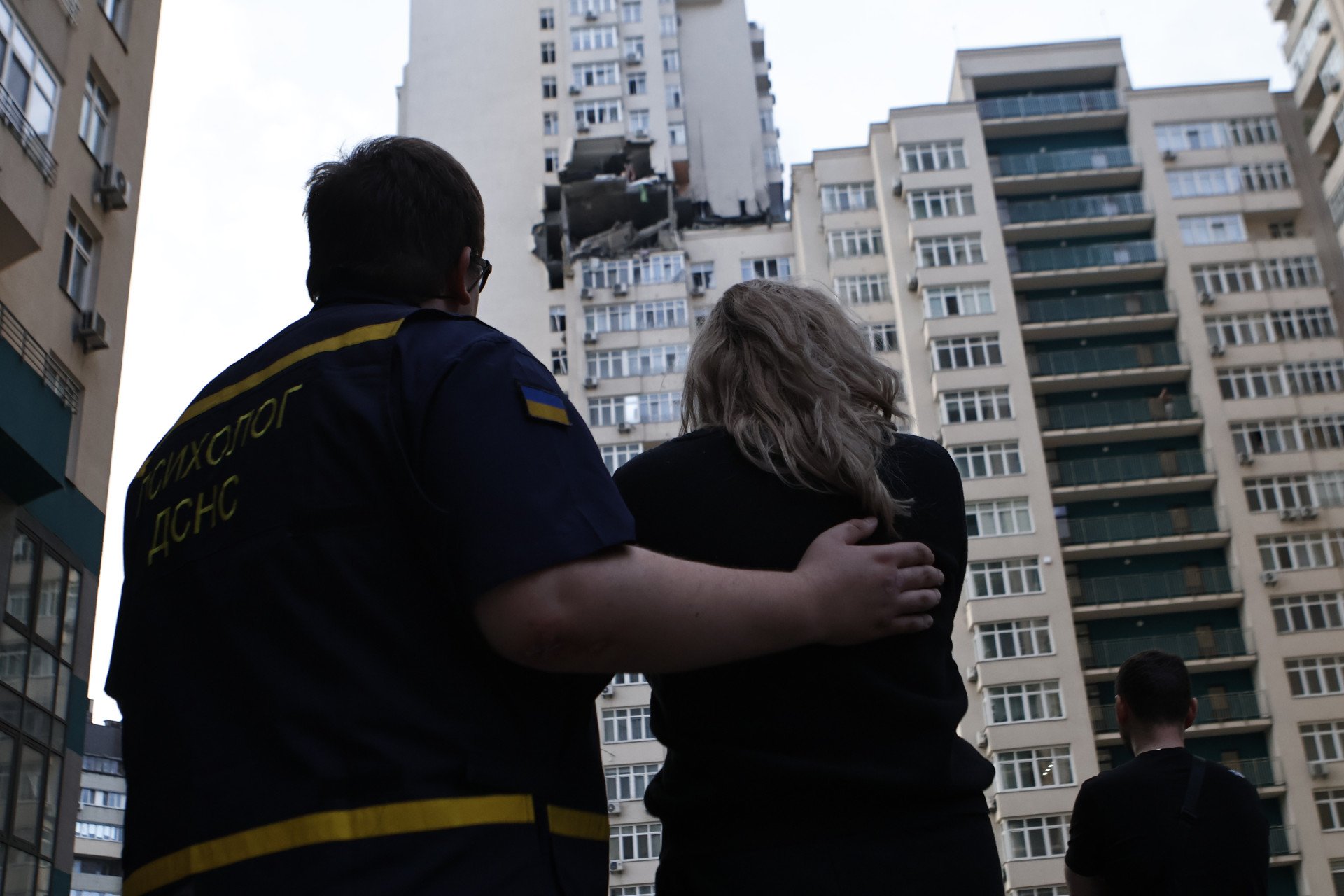
First to support
We make sure that people don’t hurt themselves.
Illia Borodovko
Head of the Psychological Support Department at SESU in Zaporizhzhia region
Psychological first aid providers are the first to arrive when disaster strikes. “We respond anytime—day or night,” says Illia Borodovko, Head of the Psychological Support Department at SESU in Zaporizhzhia region. “As soon as it happens, we’re in the vehicle and on our way.”
Once on-site, their first task is ensuring safety—not just for civilians, but for themselves. “We scout for nearby bomb shelters immediately. Secondary strikes are common,” explains Anastasiia Senko, Lead Specialist of the Psychological Support Department at SESU in the Kharkiv region. Russia’s infamous “double-tap strikes” deliberately target first responders and rescue teams who arrive on the scene to help the injured.
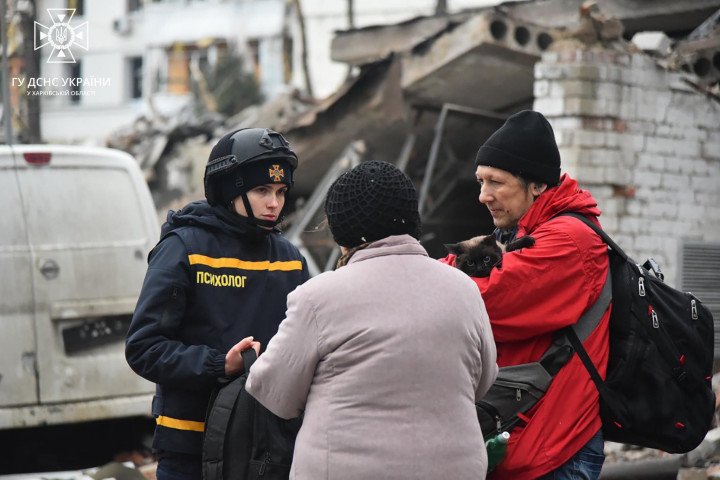
Wearing helmets and bulletproof vests, the teams swiftly establish psychological support stations or work directly with distressed individuals. Their job is to stabilize, reassure, and provide immediate relief, getting people through the shock and panic that can overwhelm them in those first moments of crisis. “Sometimes, it’s not the people with visible, acute reactions,” says Liubov, who is Head of Kyiv’s Psychological Support Department at SESU. “They could be people in a withdrawn or passive state.”
A cup of tea. A quiet place to sit. A kind word. These small acts can anchor someone in chaos. “But it’s important not to overstep,” says Nadiia Kalabai, a psychologist at SESU in Lviv region. “We introduce ourselves, explain why we’re there, and ask how we can help. Sometimes, all someone needs is information—where to get their windows repaired or how to temporarily cover them. That gives people a sense of direction, a plan.”
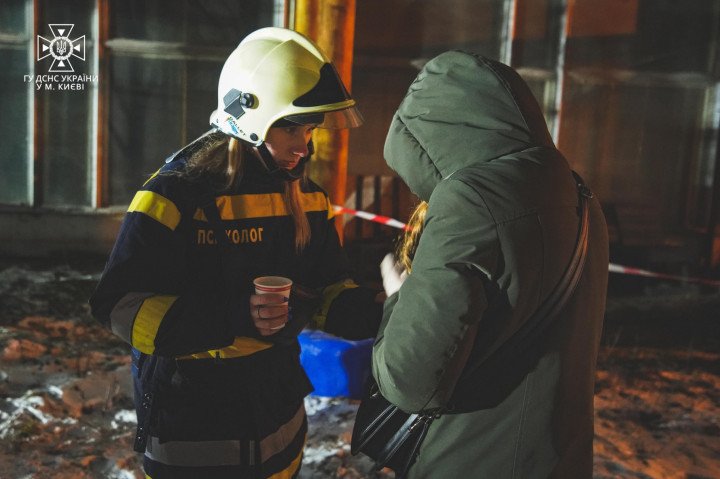
For some, grief manifests in anger. “They might lash out—‘What can you do? My loved one is gone!’ Others cry and stand there silently,” says Anastasiia. “We don’t push advice or solutions. We focus on basic needs—water, tissues, or warm tea on a cold day.”
When the situation is dire, they use grounding techniques. “We make sure that people don’t hurt themselves,” says Illia. “If someone’s leg is trapped under a slab, we stabilize them—calm them down—so that our team can safely free them using tools.”
The wrong words can worsen the trauma. “We avoid phrases like ‘Don’t cry’ or ‘Calm down,’” says Liubov. “Instead, we use proven techniques, from breathing exercises to controlled water consumption.”
Being present
Your shift doesn’t end until the job is done.
Olha Demennikova
Head of the Psychological Service Department of the State Emergency Service of Odesa region
For the families of the injured or deceased, these responders become pillars of strength. “When you’re a psychologist called to an emergency site, it’s clear from the start that grief awaits you there,” says Olha Demennikova, Head of the Psychological Service Department of the State Emergency Service of Odesa region. “Your shift doesn’t end until the job is done.”
“In Hroza,” says Anastasiia, recalling one of the most devastating Russian strikes on Kharkiv region that killed 59 people with one hit. “Rescuers were everywhere, pulling bodies and remains out of the rubble. The relatives… They were moving from one body to another, trying to see if their loved ones were among them.”
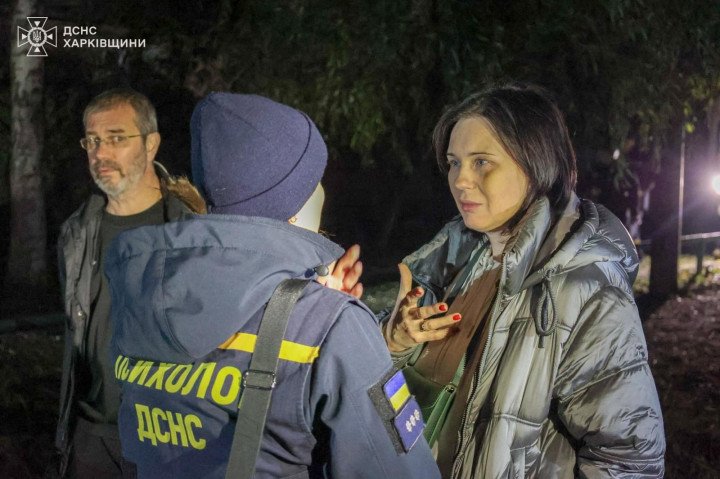
The psychologists did their jobs—carefully approached people and offered help. “When people stood outside all day in the freezing cold, waiting for rescuers to recover their daughter’s body… It was brutal,” said Anastsiia. “We brought them tea, wrapped them in blankets, and stayed by their side.”
The psychologists are also there when helping a family cope with the task of identification. During yet another Russian attack on Kharkiv’s multi-story building, two boys, 15 and 11, were killed. The 11-year-old’s heart stopped in the ambulance.
“A woman arrived at the scene, looking for her son, asking, ‘Where is he? Where is my child?’” says Anastasiia. “My colleague stayed with her the entire time. At the ambulance, she couldn’t tell if the boy inside was hers—her boy was 15. She kept staring, unable to make sense of anything. My colleague gently asked if she could identify him by anything specific. She mentioned his eye color. The 11-year-old had brown eyes. Her boy had blue. Our psychologist was there, opening the boy’s eyelids, helping her identify the body.”
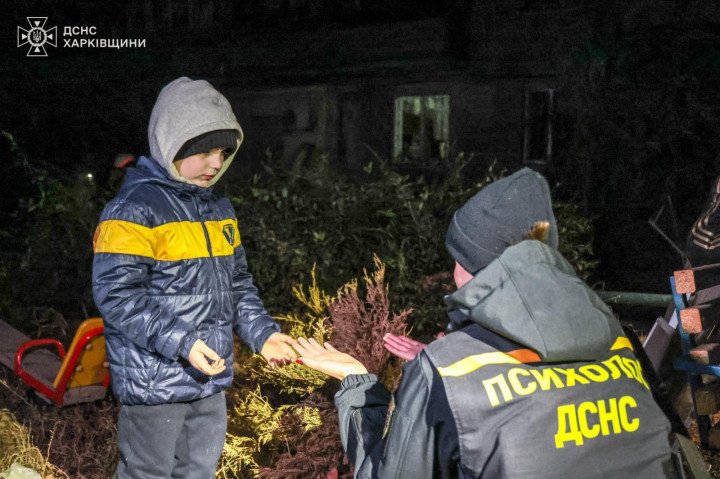
The toll
But the night will come, and the rockets will fly again.
A 3-year-old boy from Lviv
Before Russia’s full-scale invasion, psychologists focused on supporting rescuers after emergencies. The scale was smaller, and the risks contained—no air raids, no double-tap strikes. Now, the war’s relentless scope has reshaped their work.
“In Borodyanka, we worked amid the rubble—buildings were completely destroyed,” Liubov recalls. “Bodies recovered from the basements. A woman lost her entire family there. She came to the site every day during the rescue operations, going through cycles of crying and emotional breakdowns. Eventually, she entered a state of stupor.”
Stupor is one of the most difficult states to handle, says Luibov. Stupor isn’t just someone refusing to talk—it’s a state where a person cannot react, even when others are trying to engage. “We had to act quickly. It took five minutes to bring her back, but stabilizing someone from a state of stupor can be far tougher than addressing crying or hysteria.”
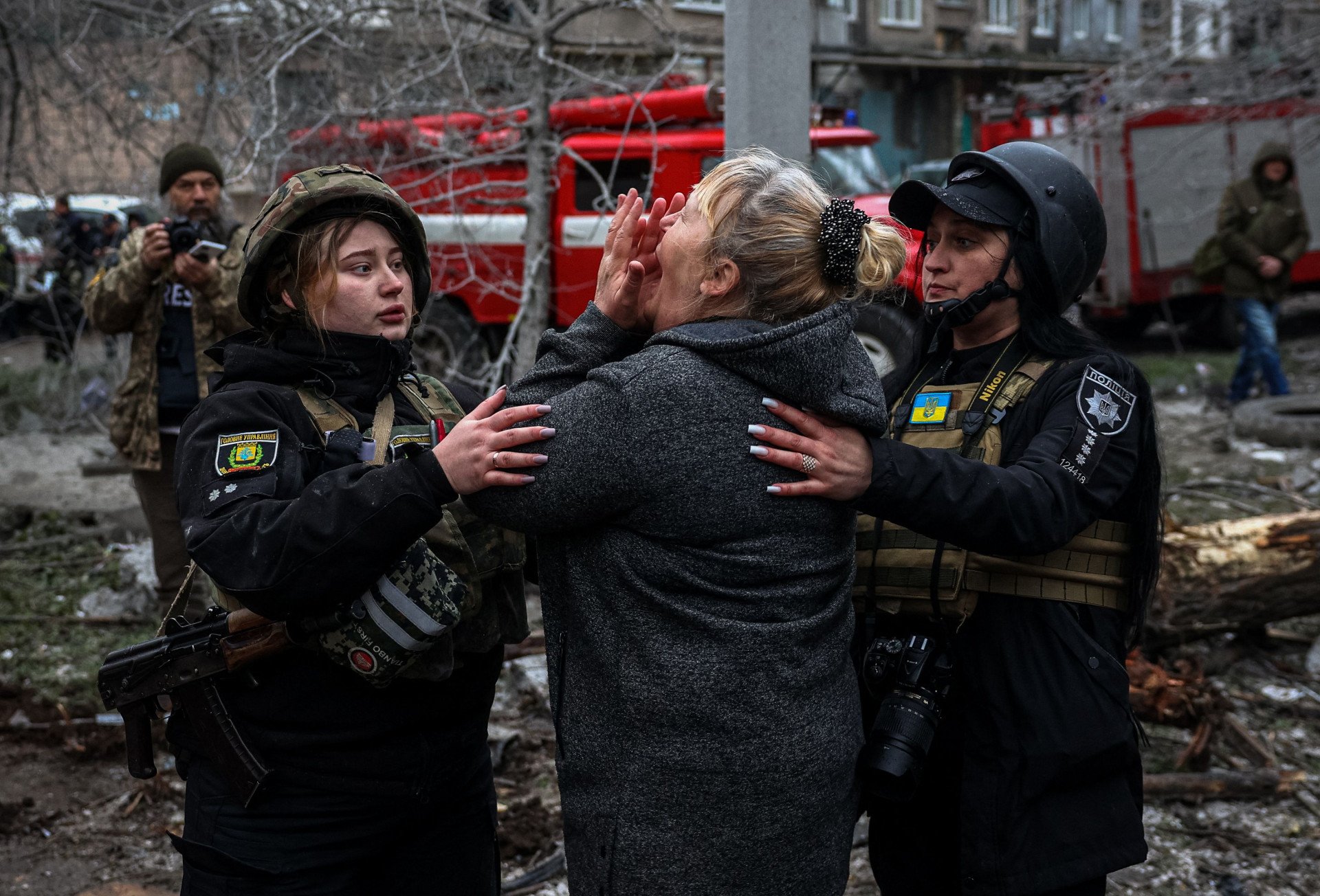
Children’s trauma is especially heartbreaking. Nadiia remembers talking to a three-year-old boy after a Russian missile hit a building on Lviv’s street. “He looked at me and said, ‘But the night will come, and the rockets will fly again, and we’ll have to run.’ It broke my heart.”
Little boy shouldn’t have to know about missiles, let alone understand that they can hit residential buildings. Yet, that was his reality—his lived experience. “It’s painful—not just as a psychologist, but as a mother of two,” she said.
“We responded to a maternity hospital hit by a Russian missile. A two-day-old baby was killed. So small—just two days,” says Illia, showing with his hands the size of the baby. “I had to handle the identification and everything.” Another devastating incident was a direct strike on a house. “Inside were a father and his daughter. The impact tore them apart completely. We had to collect everything in small pieces.”
The work takes a toll. “During emergencies, we shut off any personal feelings,” shares Anastasiia. “We focus on the task at hand. It’s only afterward the thoughts creep in: ‘There were children among the victims,’ or ‘That family lived just like ours.’ No such thoughts come up it the moment because it’s work—we have a clear algorithm and protocols to follow.”
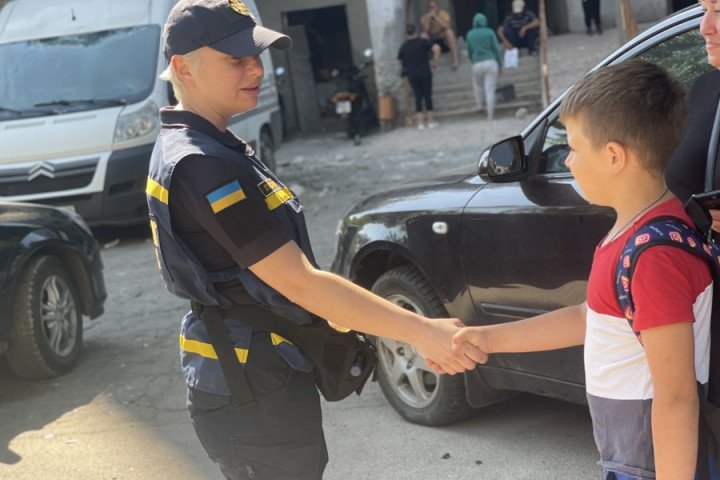
Holding it all together
Tell us a joke!
Residents of one Odesa building
The psychologist's work doesn’t end when the emergency response does. Their primary mission is to care for those who rush headfirst into danger—rescuers.
“Our guys are incredibly strong and brave, but they’re human too,” says Olha. Workshops on stress management, emotional resilience, and maintaining mental health in one of the most high-pressure, traumatic professions are a big part of the job. Preventing burnout and secondary trauma is just as important as responding to emergencies. They also train rescue teams in psychological first aid, ensuring they can support civilians even when specialists can’t be there. “It’s like applying a bandage at the right moment—timely psychological support can make all the difference,” explains Nadiia.
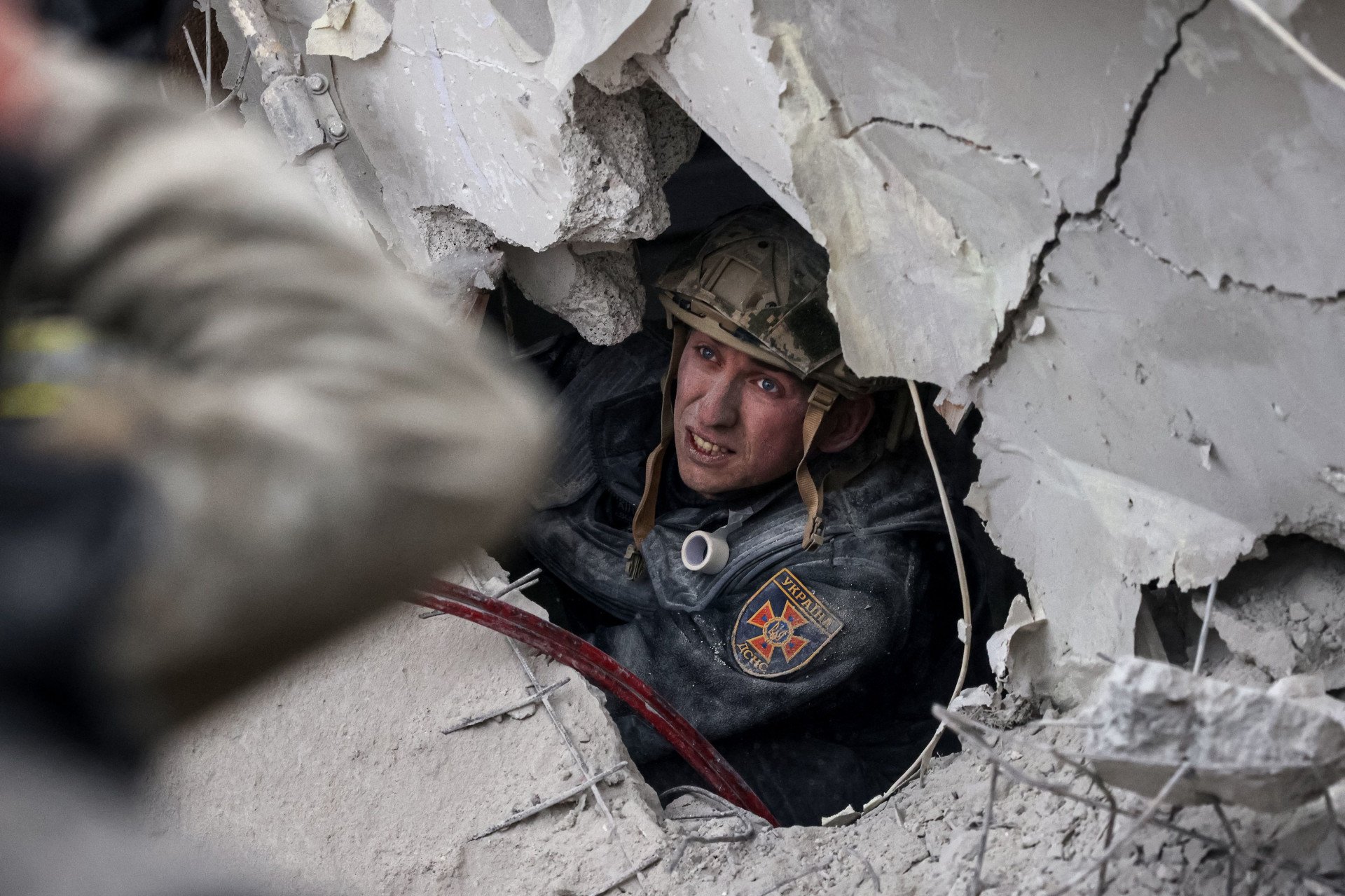
After major operations, psychologists debrief teams, helping rescuers process what they’ve witnessed and preparing them emotionally for the next mission. “It really helps to let it out,” adds Anastasiia. “All of us go through therapy.”
“We’re currently planning family-oriented events,” says Olha. “Rescuers can participate with their children and spouses—wives or husbands, since we also have women rescuers.”
For Nadiia, transitioning from psychologist to mom is her way of recharging. “Spending time with my kids grounds me. Even when we were decorating our Christmas tree and the power went out—it didn’t stop us. I still felt good emotionally. These little rituals are important.”
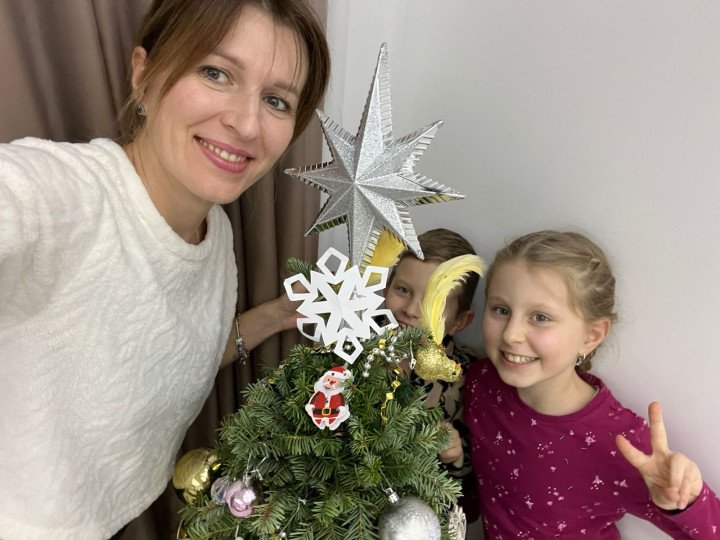
Personal resources play a big part in healing. “I have three dogs—that’s my dream come true,” says Olha. “Just thinking about my pups, how they greet me when I come home, lifts my spirits.”
“Driving home with music, sharing coffee with a friend—these feel like accomplishments now,” says Illia. “Living in Zaporizhzhia, it’s hard to relax. You might have a week of calm, and then—boom. You learn to treasure the simple joys.”
Even at work, there’s a spark of joy to find despite the devastation the Russian assaults bring. Olha remembers one strike that damaged buildings, but the people were unharmed. “The residents told me how the blast shattered their windows and caused damage. What can a psychologist do in such situations? Well, in this case, they said, ‘Tell us a joke!’ And boy, I did. I told them all the best jokes I had.”

Help from outside
The global community’s support is crucial—right here, right now.
Nadiia Kalabai
a psychologist at SESU in the Lviv region
Support from international partners has been lifesaving. The UNDP recently provided SESU with a Peugeot Traveller, a custom-designed van for crisis response. “It’s a game-changer,” says Illia. “It’s not just a vehicle—it’s a mobile base for psychological aid.”
Before the Traveler, emergency psychologists had to use their own cars to transport essential gear like body armor, helmets, psychologist’s kits, and even a tent large-scale emergencies. “It made everything slower and inconvenient,” Illia recalls. “Now, everything we need is packed in the vehicle. It’s stocked with first-aid supplies, water, and, based on experience, even cigarettes, which often come in handy.”
Illia recounts one instance where the van became a temporary shelter for a 16-year-old girl in shock after a Russian missile strike damaged her building. “We brought her into the van to help her settle down and process what had happened while waiting for her parents,” Illia says. “By the time they arrived, she was doing much better.”
Ukraine has benefited from the expertise of its partners, often shared through international organizations. But as the war continues, Ukrainians are beginning to share their expertise with the world.
“We’re used to Europe and America sharing their expertise with us, often through international organizations,” says Anastasiia. “I’ve had the chance to attend several training sessions hosted by these organizations. But now, I believe it’s time for us to share our experience with them. Their insights are based on their own contexts, but what’s happening in Ukraine—the scale of this war—is unprecedented in modern history.”
She points out that no training manual could prepare anyone for situations like a missile strike that kills dozens of people in a single moment. “We’re grateful for the knowledge they share with us. We take note of it, adapt it, and combine it with what we’ve developed ourselves to create something truly effective and impactful.”
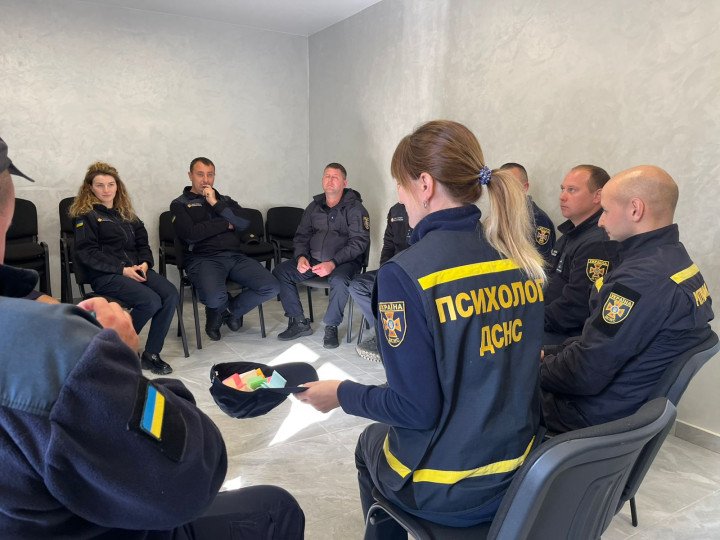
“We have a very broad range of experience, and it differs,” says Liubov. “Some protocols have been adjusted by us, and we actively use them in our professional practice.” Yet, when it comes to the best example she has, Liubov mentions her father. “My father worked in this field for 25 years. Watching him set such a strong example helped me realize that this was my path and what I wanted to do. I found psychology particularly fascinating. I’m genuinely happy with my choice and feel fulfilled in my work today.”
“The global community's support is crucial—right here, right now,” says Nadiia. “Without international aid, I can’t imagine how we’d manage. Their deeper understanding of what we’re enduring, how we’re coping, and what truly helps could inspire even greater support. In return, we’ll keep sharing our experiences and maximizing the resources they provide.”

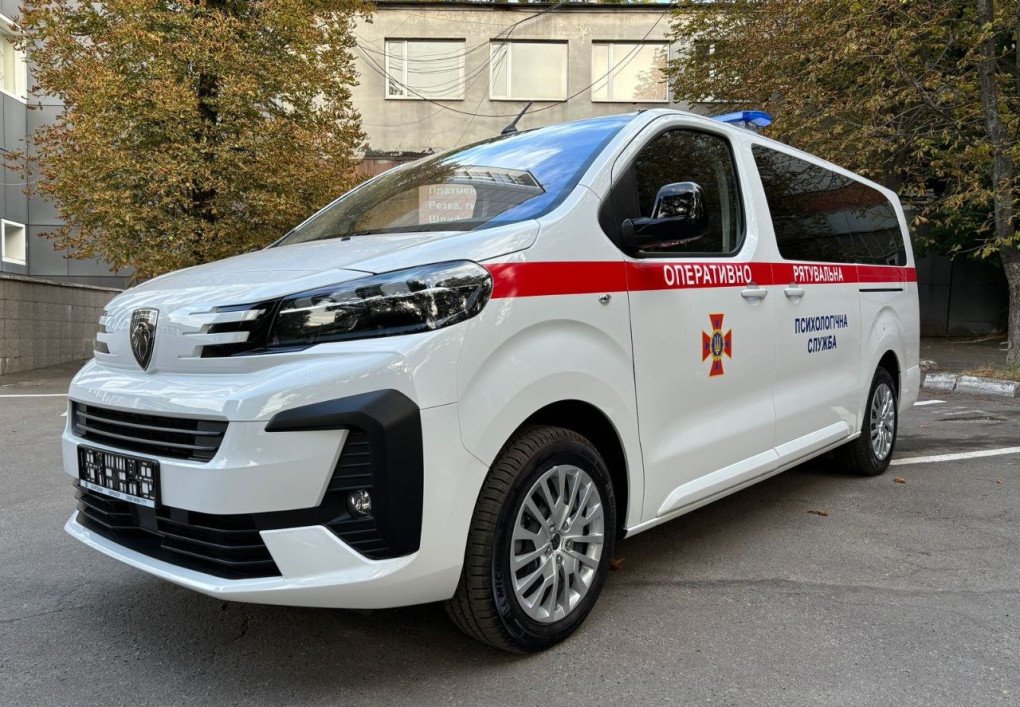
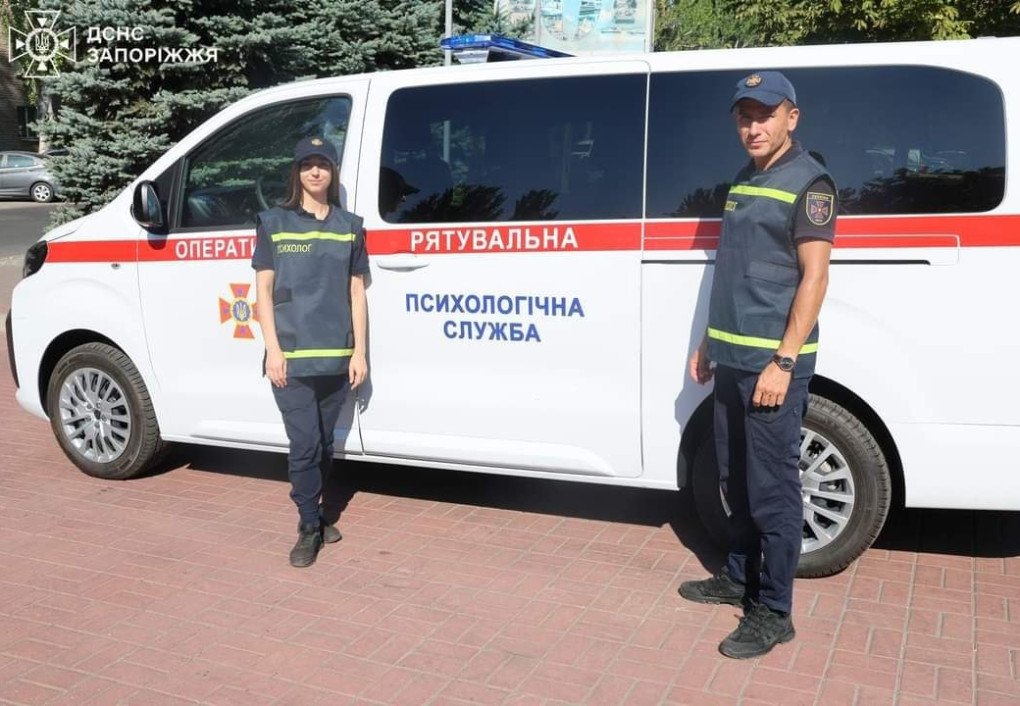
-35249c104385ca158fb62273fbd31476.jpg)


-554f0711f15a880af68b2550a739eee4.jpg)



-206008aed5f329e86c52788e3e423f23.jpg)